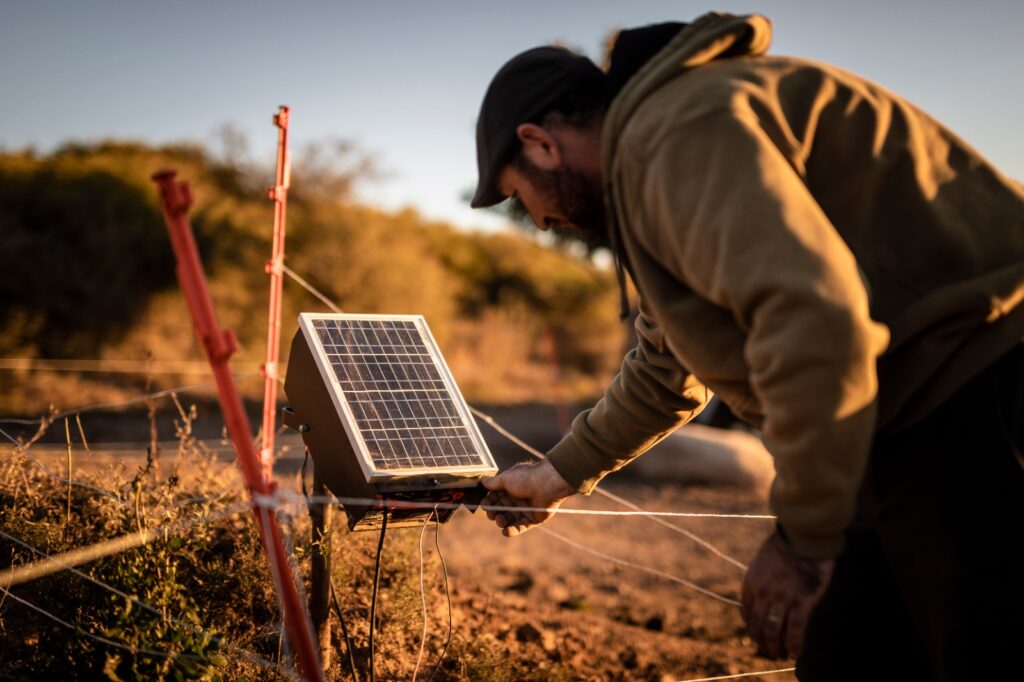https://pv-magazine-usa.com/2023/03/29/giving-women-support-to-engineer-the-renewable-energy-future/
Giving women support to engineer the renewable energy future

Image: Grid Alternatives
I could count on one hand the number of fellow female engineers I graduated with from Marquette University. This mirrors the demographics across the country where women account for only 14% of engineers and only 8% of the nation’s electrical engineering workforce.

We’re simultaneously facing another not-so-quiet crisis: our nation is in dire need of more power engineers to do the difficult work of interconnection studies, maintenance, and operation of our quickly fraying electricity grid, which is growing more complex by the day. Gigawatts of renewable energy generation projects are stuck in interconnection queues, waiting for their turn to bring us the cleaner energy system we needed yesterday.
Electrical and power engineers are not the only ones in the energy industry in very short supply. There is also a dire need for more trained electricians to do the critical work of wiring the solar panels, wind turbines, and batteries we need to make the transition to a renewable energy system. The gender disparity is also stark for trained electricians with only 2% of those employed being women.
We can solve both problems at once: recruiting more women into the engineering workforce and making more opportunities available in electrical engineering programs. This will foster true gender equity and help solve our current shortage of qualified people doing the hard work of transitioning our power grid from one dependent on fossil fuels to one built upon a distributed network of non-emitting solar, wind and energy storage projects.

My own path to electrical engineering was successful because of well-timed interventions from adults who saw my potential. When I was in high school, my chemistry teacher noticed that I enjoyed math, problem solving, and science – and he suggested that I attend an engineering camp during the summer. I had a basketball tournament the weekend before camp started, so I put my basketball bag on one shoulder and my camp bag on the other and set off to give it a try. Sure, it was challenging and a bit nerve-racking at first to step into a new experience, but that small leap of faith put me on a career path to working on nuclear power plants, mission critical facilities, airplane screen displays, and now energy storage systems that store solar energy and stabilize electricity grids. Our storage systems help fill the intermittency gap of renewable energy sources – ensuring that the energy captured before the sun goes down can be saved for later, when the demand for electricity rises. Without the nudge to give an engineering camp a try, I wouldn’t have known about the fascinating and impactful engineering careers like the one I have now. Because of preconceptions of what girls can do, we leave so much potential skill and brainpower untapped, and we need everyone onboard to make the energy transition happen.
That’s not to say there won’t be challenges in the way. When I enrolled at Marquette University, I was the only engineer on the school’s basketball team. I wasn’t getting much playing time on the team and engineering proved difficult at times. A few months in, I called my mom, ready to quit both. She gave me the advice I needed to persevere; in basketball, she said to keep up my training and wait it out. Sure enough, by the end of the season, my hard work and dedication paid off and I started getting playing time. During my senior year, I was captain of the basketball team, learning the valuable leadership skills that would serve me professionally for years to come. My mom also encouraged me to find tutoring and a study group for my engineering work. I found other students who stayed as part of my support network for years. No one expects you to know everything all the time. That’s true for school and it’s true once you enter your profession. Find mentors and ask for the support you need.
Engineering careers provide steady, high paying employment. Electrical engineers are going to have plenty of work for decades to come in the energy sector alone. Engineering training also provides highly transferable skills: Henry Ford and Soichiro Honda were both engineers before they went into business and management.
Giving opportunities to girls and young women to attend camps and experience engineering requires involvement from all fronts. First, we must create opportunities for girls in middle school and high school to try Science, Technology, Engineering and Math (STEM). In addition, we need to support young women to overcome the fear that comes with trying something new, especially skills and interests that society has cast aside as “nerdy” or just for boys. It may sound trivial, but that kind of mentality and stereotyping can be a big hurdle in preventing young women from seeing themselves as engineers. So often fear holds us back. It whispers doubt into our ears at every possible turn, keeping us from opportunities that we deserve.
My advice is this: don’t let fear get in the way. That’s not to say things won’t be challenging at times, but I’m living proof that it can and should be pushed through. And I hope to see many more young women enter the field to engineer the renewable energy solutions of today and tomorrow.
Let’s set up young women for the best possible success and show them the immense opportunities that await them in engineering and renewable energy. Get girls inspired, get them the support they need, and let’s ensure that we shine a bright light on the girl power needed to build the clean energy future.

Jasmine Robinson holds a Bachelor of Science in Electrical Engineering from Marquette University and is currently a project manager at IHI Terrasun Solutions, which provides integration, software and services to large-scale energy storage projects.
The views and opinions expressed in this article are the author’s own, and do not necessarily reflect those held by pv magazine.
This content is protected by copyright and may not be reused. If you want to cooperate with us and would like to reuse some of our content, please contact: editors@pv-magazine.com.



